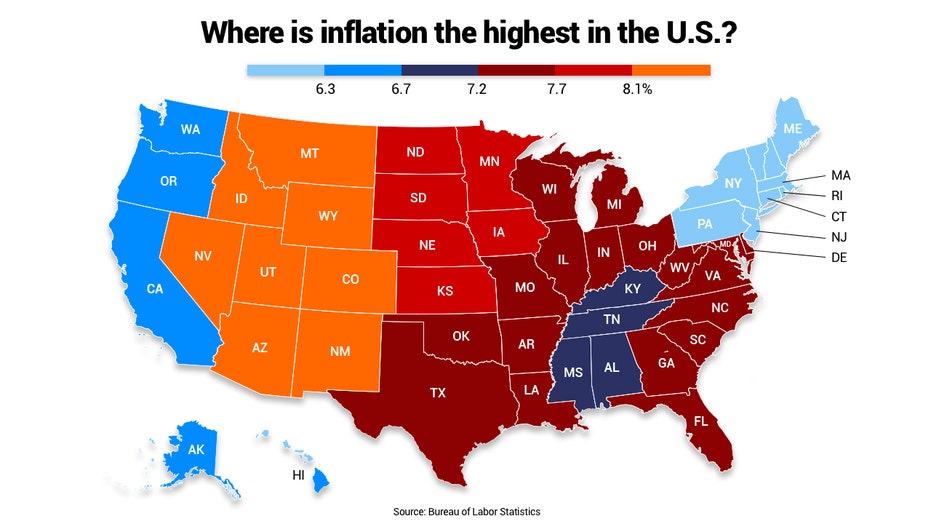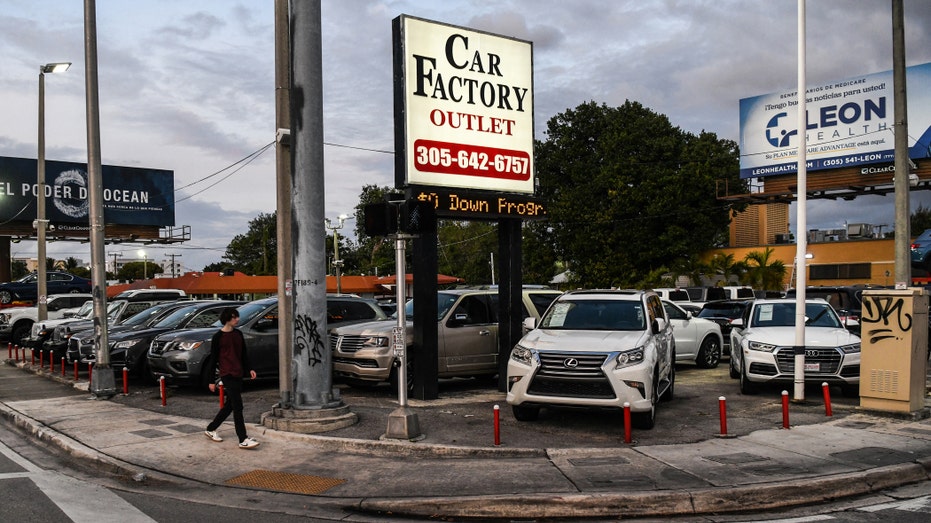Surging inflation takes hold in Mountain States, with rates near 9%
Increase starkest in Montana, Wyoming, Idaho, Nevada, Utah, Colorado, Arizona, New Mexico
Consumers 'exhausted' by rising gas prices, inflation: Baruch
Blue Line Capital President Bill Baruch says bad policy in Washington has forced crude oil and energy prices higher.
American consumers are grappling with the hottest inflation in a generation, and some parts of the country are seeing steeper price increases than others.
The consumer price index rose 7% in December from a year ago, according to a Labor Department report released earlier this month, marking the fastest increase since June 1982, when inflation hit 7.1%. The CPI – which measures a bevy of goods, ranging from gasoline and health care to groceries and rents – jumped 0.5% in the one-month period from November.
But the increase was starkest in the region that encompasses Montana, Wyoming, Idaho, Nevada, Utah, Colorado, Arizona and New Mexico, with prices surging by a staggering 8.6%.

Other states that are experiencing red-hot inflation are North Dakota, South Dakota, Nebraska, Kansas, Minnesota and Iowa, with prices up 7.7% from last year. It was trailed by a 7.5% increase in Maryland, West Virginia, North Carolina, South Carolina, Georgia, Florida, Texas, Oklahoma, Louisiana, Arkansas, Missouri, Illinois, Wisconsin, Indiana, Michigan and Ohio.
By comparison, prices in the mid-Atlantic – New York, New Jersey and Pennsylvania – were far lower, climbing 5.8% in December from the year-ago period. The New England region experienced the next-lowest rates with 6.2% inflation.
Rising inflation is eating away at strong gains and wages and salaries that American workers have seen in recent months: Real average hourly earnings rose just 0.1% in December, as the 0.5% inflation increase eroded the 0.6% total wage gain, according to the Labor Department. On an annual basis, real earnings actually declined 2.4%.

A pedestrian walks past a pre-owned car sales lot in Miami, Florida, on January 12, 2022. (Photo by Chandan Khanna/AFP via Getty Images / Getty Images)
The inflation spike has been bad news for President Biden, who has seen his approval rating plunge as consumer prices rose. The White House has blamed the price spike on supply-chain bottlenecks and other pandemic-induced disruptions in the economy, while Republicans have pinned it on the president's massive spending agenda.
In a statement following the data release, Biden touted the decline in month-over-month inflation – at 0.5%, it was down slightly from the 0.8% increase in November – as evidence of a "meaningful reduction in headline inflation" and demonstrative of falling food and gas prices.
"At the same time, this report underscores that we still have more work to do, with price increases still too high and squeezing family budgets," the president said. "Inflation is a global challenge, appearing in virtually every developed nation as it emerges from the pandemic economic slump. America is fortunate that we have one of the fastest-growing economies."





















